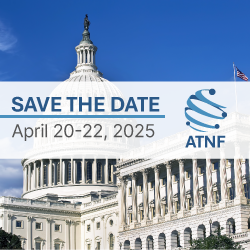
The Cigar Association of America (CAA) has asked the Office of Management and Budget (OMB) to withdraw the Food and Drug Administration flavored cigar product standard (FCPS) banning flavors in cigars, which it said would cost the industry nearly $4 billion in sales—up to 47 percent of industry sales—and destroy 16,000 jobs.
“We presented evidence to OMB that FDA’s proposed flavored cigar ban dramatically fails to meet the criteria necessary for such a ban under the Tobacco Control Act, offering little or no public health benefit while having a devastating economic impact on the industry,” said CAA President David Ozgo in a statement following the group’s Nov. 6 meeting with OMB officials.
“FDA claims the product standard will reduce youth usage of cigars and that prohibiting flavored cigars will address health disparities in minority adult subpopulations. CAA showed OMB government data demonstrating that neither of these claims is true.”
In order for FDA to impose a flavored cigar ban through a FCPS, the law requires that the Agency consider: whether the potential product standard is appropriate for the public health, taking into consideration scientific evidence concerning the risks and benefits to the population as a whole; the increased or decreased likelihood that existing users of tobacco products will stop using such products; and, the increased or decreased likelihood that those who do not use tobacco products will start using such products.
“FDA’s flavored cigar product standard fails on all three accounts,” Ozgo charged. “Youth usage rates of cigars, and of flavored cigars in particular, are at all-time lows and these low rates reflect a stable and sustained trend.”

There is little or no public health benefit from the proposed flavored cigar product standard, but huge negative economic consequences will result.
David Ozgo, president, CAA
The 2022 National Youth Tobacco Survey (NYTS) showed past 30‐day youth cigar use at 1.85 percent and past 30‐day youth flavored cigar use at 0.83 percent. The recently released 2023 NYTS data showed past 30‐day youth cigar use has declined to 1.6 percent. While the flavored cigar use data has not yet been released, it is expected to follow the trend at under 1 percent of use.
Other government surveys reflect similar trends. In fact, the most recent Population Assessment of Tobacco and Health Survey (PATH) showed that past 30-day youth usage of cigars was only 0.7 percent and past 30-day youth usage of flavored cigars was just 0.14 percent.
In addition to unsupported youth usage claims, the CAA contends that the FDA failed to show that adult subpopulation health disparities are associated with flavored cigar use or that banning flavored cigars would remedy these disparities among Black, Non-Hispanic Americans. The CAA did so despite the fact that FDA is required by law to base its decisions not on subpopulation impacts but on impacts to the population as a whole.
“FDA’s claims aside, there is simply not a pattern of use of these products that raises a concern of public health that can justify eliminating an entire category of products, while depriving adult consumers of the right to choose these products” Ozgo said.
While the public health case is non-existent, FDA’s proposal would have dramatically negative economic consequences. A recent study by the Policy Navigation Group showed the flavored cigar ban would reduce retail sales by nearly $4 billion, up to 47 percent of industry sales, causing some 16,000 people to lose their jobs.
The CAA and other industry groups recently convinced a court to reject the agency’s effort to regulate “premium” cigars. More particularly, the judge in the case ruled against the FDA, citing the agency for ignoring the scientific evidence. The proposed FCPS similarly ignores scientific evidence.
“Just as it did in 2016 and 2019, we urge OMB to again reject FDA’s flavored cigar proposal,” said Ozgo. “There is little or no public health benefit from the proposed FCPS, but huge negative economic consequences will result. This is as bad as public policy gets. Ultimately, FDA’s proposal is a solution in search of a problem.”





